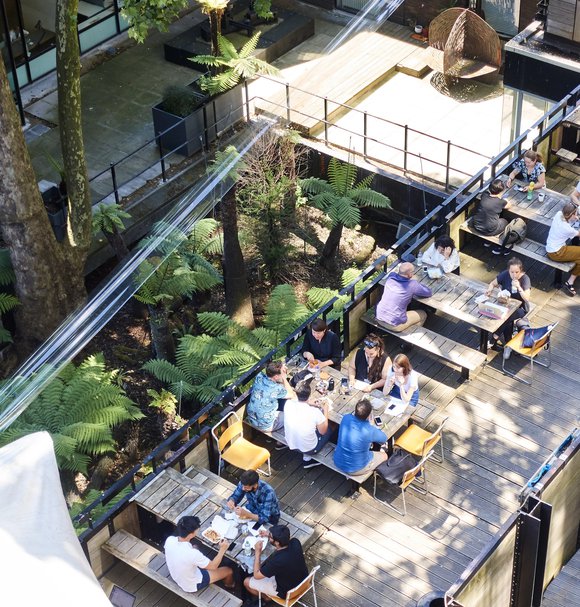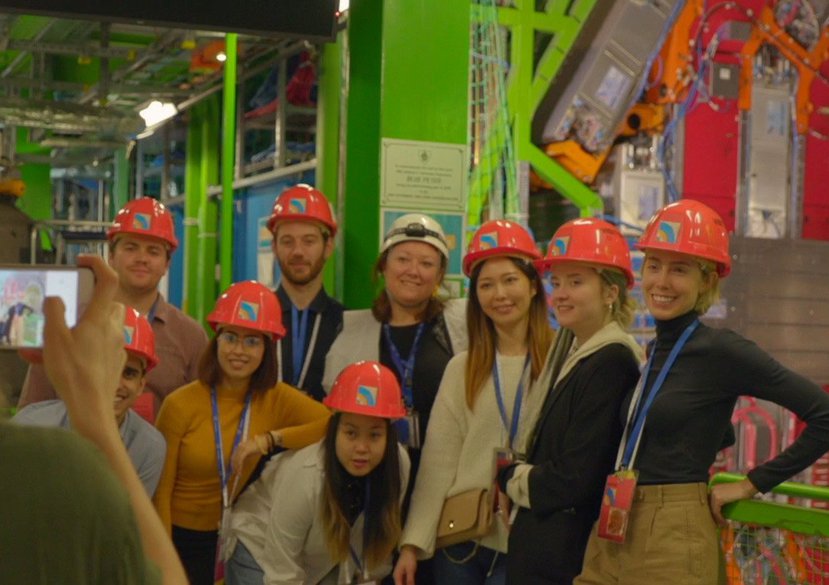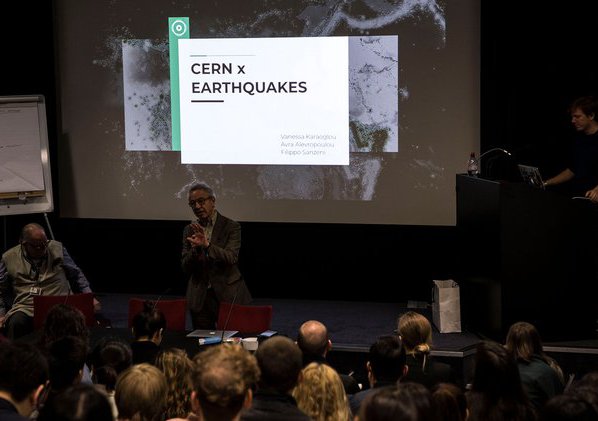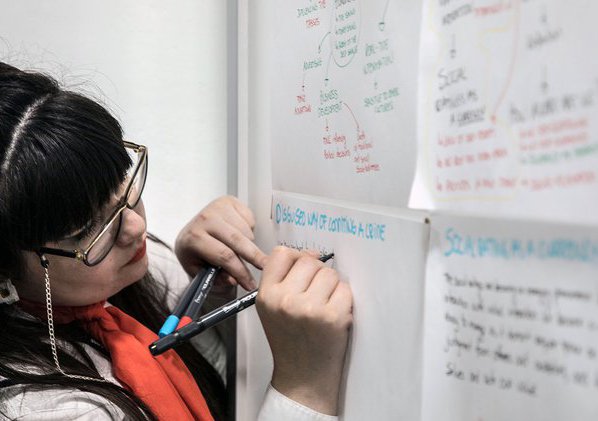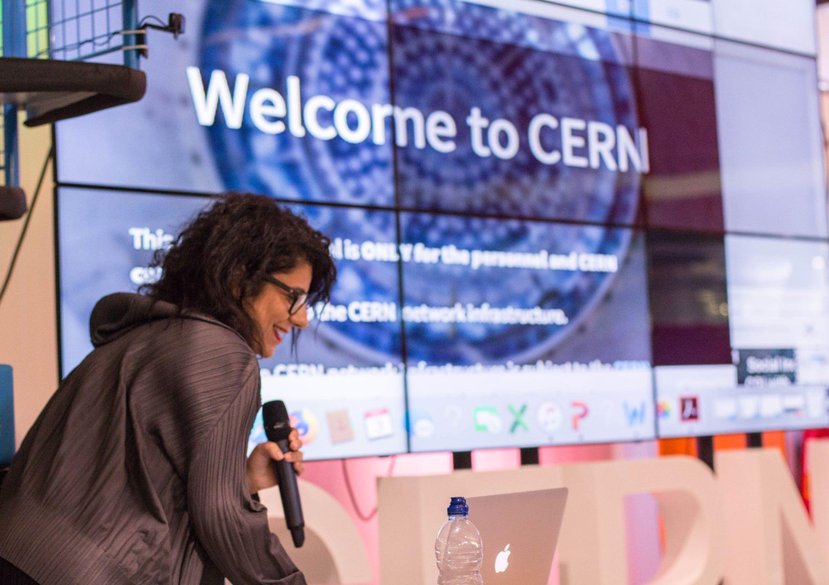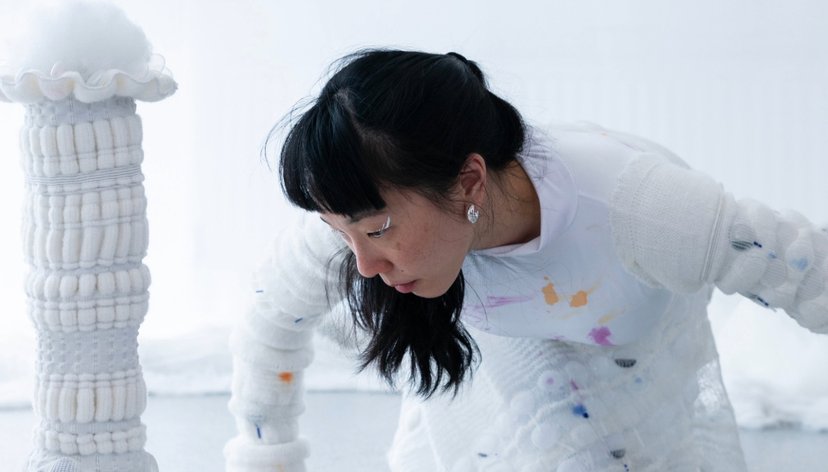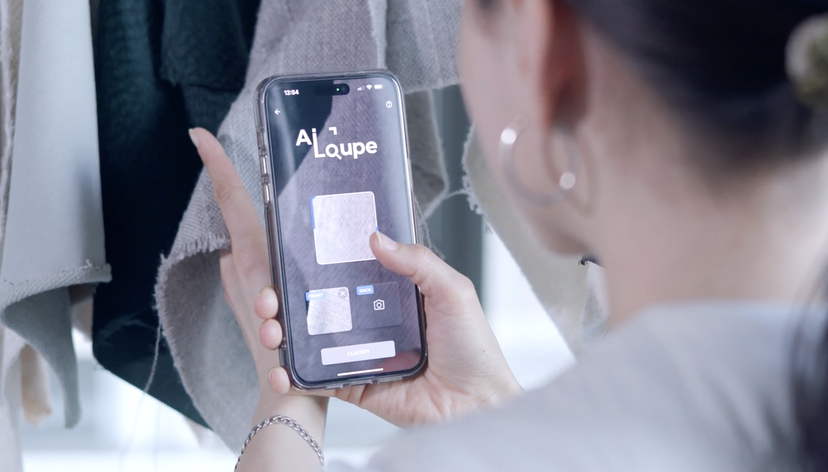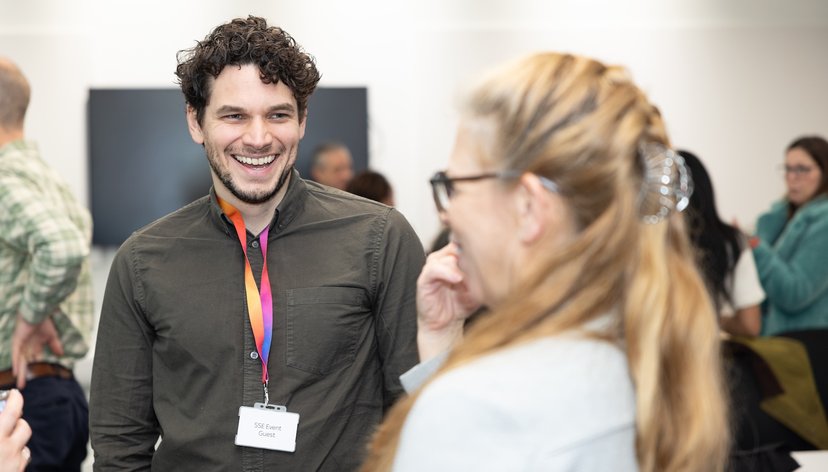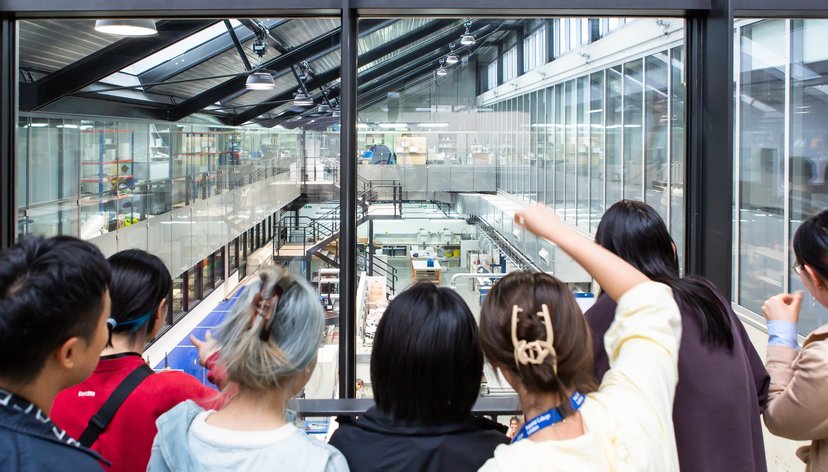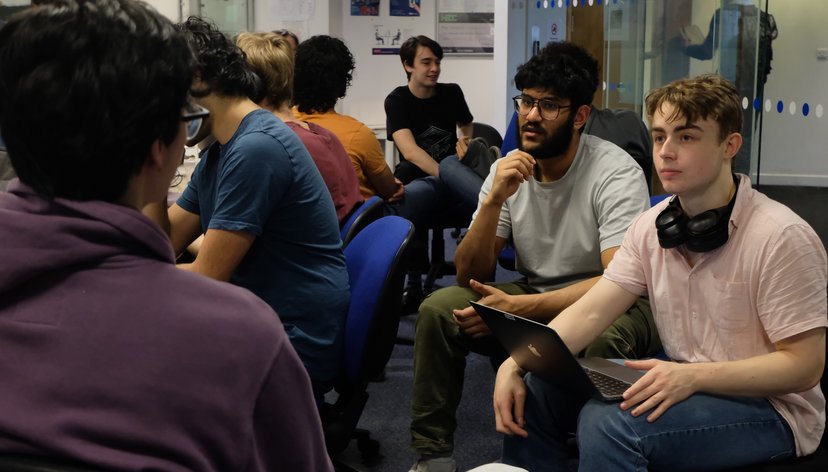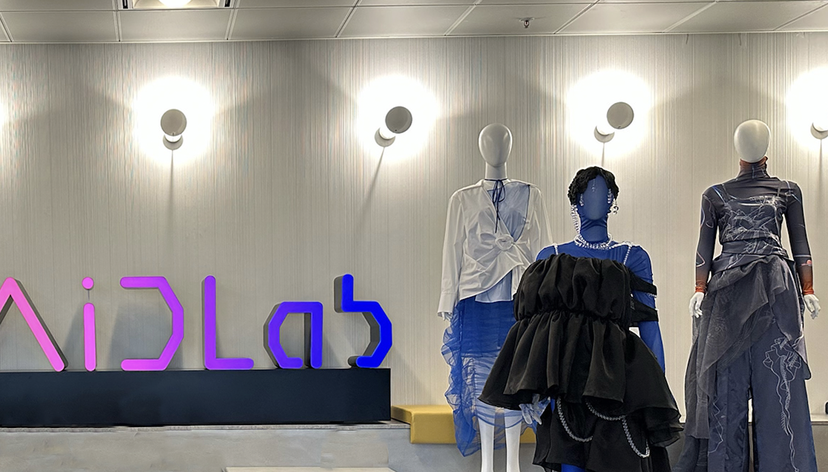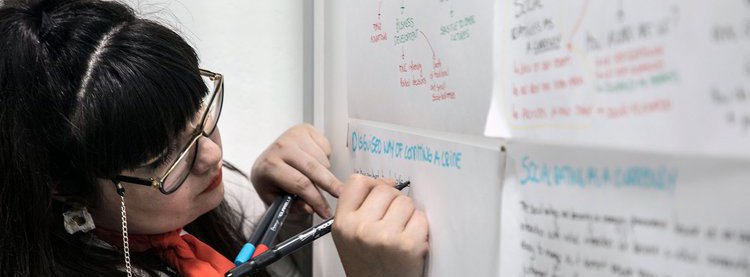
The Grand Challenge 2018/19 addressed four themes set by the RCA and CERN: Health & Wellbeing; Digital Disruption; Energy, Infrastructure and the Environment; and Social and Economic Disparity.
At a glance
- The Grand Challenge is a unique and innovative learning experience for MA students in the School of Design.
- In 2018, CERN, the European Laboratory for Particle Physics, and the Royal College of Art came together to explore how science, technology and design can propose solutions for international sustainability challenges.
- Multidisciplinary teams of students worked together to design solutions across four key areas: Health & Wellbeing; Digital Disruption; Energy, Infrastructure and the Environment; and Social and Economic Disparity.
“It’s the largest multidisciplinary project CERN has ever conducted and to have them choose to collaborate with the Royal College of Art is a real privilege. We have so much to learn from each other, our starting point as designers is perhaps different to scientists but we’re all trying to meet in the middle to work out solutions. For that reason, this project has been a fascinating learning experience for our students and will equip them with skills they can use in the next phase of their work.”
Dean of the School of Design
Key details
Gallery
More information
Partners
CERN
CERN, the European atomic physics laboratory, is the birthplace of the World Wide Web and the home of the Large Hadron Collider. Founded in 1954, the CERN laboratory – the largest particle physics laboratory in the world – sits on the Franco-Swiss border near Geneva. It was one of Europe's first joint ventures and now has 23 member states.
The 2018/19 Grand Challenge
The Grand Challenge is an interdisciplinary project that gives MA students across the RCA’s School of Design the opportunity to work collaboratively with other disciplines, including: Design Products, Fashion, Global Innovation Design, Innovation Design Engineering, Service Design and Textiles.
In 2018, students worked in interdisciplinary teams over four weeks to find solutions to a series of different global issues, set by CERN and the RCA. The teams addressed four themes:
- Health & Wellbeing
- Digital Disruption
- Energy, Infrastructure and the Environment
- Social and Economic Disparity
The project challenged students to identify the underlying causes of real-world issues, determining the needs of the communities most affected and the key stakeholders that could effect change.
What happened
- 374 Students were split into 74 interdisciplinary teams who were given four weeks to devise workable solutions to global problems.
- Each team identified the underlying causes of the four grand challenges, determining the needs of the communities most affected and the key stakeholders that could help resolve issues.
- Students then explored technologies from CERN or beyond to create compelling new solutions, supported and mentored by 16 CERN tutors and 16 RCA tutors.
- An inspiring discussion took place between Dr Markus Nordberg, Head of Resources Development at CERN, and Savina Torrisi, Senior Tutor on the RCA’s Innovation Design Engineering Programme. In RCA x CERN: In Conversation they discuss how, at the intersection between Big Science and Design, creative innovative solutions are born that advance the boundaries of human knowledge. The conversation is also available to watch via YouTube.
- The four winning teams showcased their projects during the School of Design Work-in-progress Show, visited the Large Hadron Collider and presented their work at CERN in February 2019.
The winning projects
PLOC

PLOC is an interlocking brick-cum-tile made from a versatile mould using plastic reprocessed from the established recycling industry in Dharavi, a Mumbai slum. Developed by Eric Saldanha (MA Design Products), Xiaohui Wang (MA/MSc Innovation Design Engineering), Irene Liao (MA Service Design), Megan Willis (MA Textiles) and Oliver Bassnet (MA Intelligent Mobility), PLOC deals with waste from Dharavi by creating jobs, a new cottage industry and valuable end products to improve housing infrastructure. The project showcases the viability of recycled plastic products that are durable, can be built from a grassroots level, and sustain meaningful purpose in their application.
Nari

Nari is a menstrual cup sanitisation device for women in rural India. Developed by Helene Benz (MA Service Design), Malvika Bhasin (MA/MSc Global Innovation Design), Rowan Vyvyan (Design Products), Ruoxing Long (MA Fashion Womenswear) and Yichen Shu (MA Intelligent Mobility), Nari aims to reduce the waste, cost, shame and school attendance attrition associated with menstruation.
Menstrual cups aren’t marketed in rural India due to the importance of clean water for re-use. Nari provides a low-cost menstrual cup sanitisation device for women in rural India to use safely and subtly, on-the-go. Using nanotech filtration, Nari’s sanitisation helps reduce the rate of infections from cleaning with contaminated water.
Knowtrition

Knowtrition, developed by Anya Muangkote (MA Design Products), Yi-Fan Hsieh (MA/MSc Innovation Design Engineering), Agata Juszkiewicz (MA Service Design) and Zhiyi Zhang (MA Textiles), is a smart diet system that supports users in maintaining a well-balanced diet to prevent potential chronic diseases. It consists of a scanner in the form of transformable biodegradable bioplastic bag; a skin patch that monitors nutrition data in the body and displays real-time information about food; and an app that calculates the nutritional needs of the user based on food purchasing history and health data.
CureScan

CureScan aims to combat the risks of consuming dangerous counterfeit medication by empowering consumers to tell the difference between unsafe and safe medication. Developed by Yaqiu Cheng (MA Design Products), Pinja Piipponen (MA Service Design), Frederick Phua (MA/MSc Innovation Design Engineering) and Cristiane Chaves (MA Textiles) it is an easy to use, locally 3D printed scanner that notifies the user of the medicine’s name and safety by identifying its chemical components.
The CureScan app offers information about the dangers of a counterfeit, safe online and offline pharmacies nearby, and guidance for correct storage and dosage in all local languages. While products using this technology are on the market they are aimed at trained professionals, CureScan is designed to empower the end user with confidence to trust their purchases.
Why did CERN want to work with the Royal College of Art?
CERN approached the RCA because they wanted to find innovative new ways to use their science to support and solve global societal challenges. Through collaborating with the RCA, scientists from CERN witnessed the power of design to explore and develop innovative applications for technologies through disruptive models of interdisciplinary innovation.
Ask a question
Get in touch to find out about School of Design research projects.
school-of-design@rca.ac.uk
